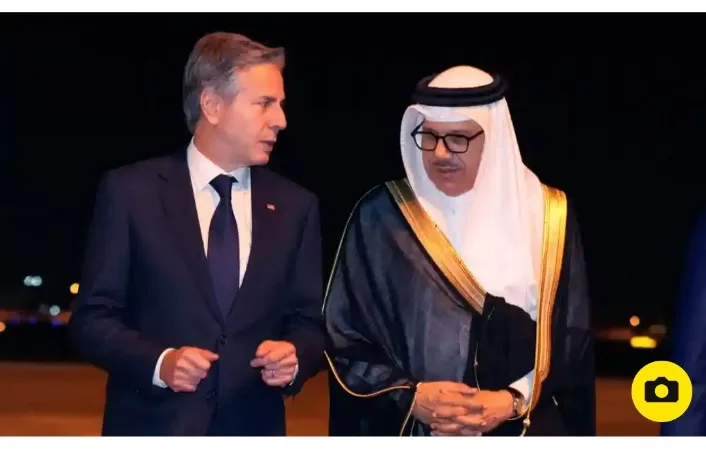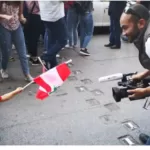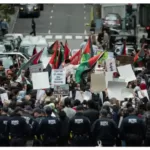In a diplomatic mission aimed at averting potential regional upheaval amid escalating tensions, the United States’ top diplomat, Secretary of State Antony Blinken, has implored Israel to exercise utmost caution in order to prevent civilian casualties in the Gaza Strip. During his tour of six Arab nations, Blinken advocated for the establishment of safe zones within Gaza, where shelter, sustenance, water, and medical aid could be provided to its vulnerable population.
Amid concerns that a fierce Israeli campaign against Hamas might result in large-scale bloodshed in Gaza or the displacement of millions of Palestinians into Egypt, Blinken has engaged with Egyptian President Abdel Fatah al-Sisi, urging the opening of the southern border crossing between Gaza and Egypt, or the creation of a broader humanitarian corridor. This comes in the wake of Israel’s directive for 1.1 million Gaza residents to evacuate their homes and relocate southward within the enclave.
While in Doha after a meeting with the Prime Minister of Qatar, Mohammed bin Abdulrahman bin Jassim Al Thani, Blinken revealed his collaborative efforts with UN agencies, Israel, and regional powers to devise a plan for safe zones in Gaza. He staunchly defended Israel’s right to self-defense, emphasizing the complexities arising from Hamas’s use of human shields and civilian areas to protect its assets.
Blinken’s discussions included talks with Israeli Prime Minister Benjamin Netanyahu regarding the mass-evacuation plan for Gaza, with the focus on safeguarding civilian lives and creating safe areas where residents can find refuge from Israel’s legitimate security operations.
Notably, concerns within the Palestinian and Arab communities persist, as some view Israel’s actions as possibly leading to a permanent expulsion akin to the historic “Nakba” of 1948, further complicated by the ambiguity surrounding the future administration of Gaza.
The Hezbollah group in Lebanon, supported by Iran, has indicated its readiness to contribute to the conflict, yet it remains circumspect about immediate military intervention. Iran, while ideologically aligned with Hamas, maintains a proxy-based approach rather than direct military confrontation with the West.
Dialogue between Saudi Crown Prince Mohammed bin Salman and Iranian President Ebrahim Raisi underscores their shared support for the Palestinian cause while avoiding full-scale conflict with Israel. A broader regional conflagration could result in oil prices exceeding $150 per barrel, potentially precipitating a global economic downturn.
The United States finds itself in a delicate position, defending Israel’s right to self-defense while privately urging Israel to conduct its operations in a manner that mitigates regional backlash.
UK Defense Secretary Grant Shapps, while not privy to Israel’s military plans, accused Hamas of employing Palestinians as human shields and affirmed the UK government’s support for Israel’s right to defend itself, provided advance warnings of military actions, and advocated for civilian protection.
In the international arena, there are calls from non-governmental organizations for the deployment of UN peacekeepers to Gaza under the Responsibility to Protect (R2P) doctrine, but such efforts are expected to face Western vetoes.
The United Nations Security Council is scheduled to convene to address the escalating situation, as the world watches anxiously, hoping for a peaceful resolution to the crisis.






